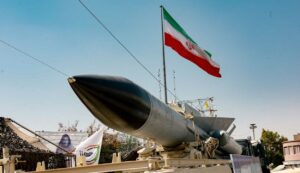US intelligence agencies: Israel is preparing to attack Iranian nuclear installations
US: As President Donald Trump warns that time is running out to negotiate a nuclear deal, tensions between Washington and Tehran are rising as U.S. intelligence has received fresh evidence that Israel may be planning to attack Iranian nuclear sites.

CNN reports that the evidence consists of intercepted Israeli conversations, military movement sightings, and remarks from top Israeli officials indicating that attack preparations may be in progress.
The Trump administration, which is now holding nuclear discussions with Tehran, would be severely strained if Israel launched an attack on Iran. The delicate diplomatic efforts might be destroyed by an Israeli unilateral action, which could even lead to a wider Middle East confrontation. Although Israel cannot destroy Iran’s nuclear program without American help, officials cited in the paper said that it may take unilateral action if it feels the final agreement is insufficient.
The U.S. has obtained information based on Israeli military movements, internal conversations, and concluded air drills, according to the CNN story. Some U.S. officials regard these activities as an indication of a genuine operational strategy, while others see them as part of a pressure campaign on nuclear negotiations.
The probability of an attack has increased “significantly in recent months,” according to an intelligence source, particularly if a deal does not erase Iran’s nuclear stockpile. The U.S. administration is divided on whether an assault will take place, and Israeli leadership has yet to make a definitive decision.
The Pressure of Trump
Trump has threatened “maximum pressure,” which includes bringing Iranian oil exports to zero, if negotiations with Iran don’t succeed, and he has warned that his offer of diplomacy won’t be on the table permanently. A total stop to uranium enrichment is a requirement that cannot be negotiated, according to U.S. officials. Special Envoy Steve Witkoff has referred to this as a “red line” because of worries about possible weaponization. Supreme Leader Ayatollah Ali Khamenei has criticized the proposal as “excessive and outrageous,” but Foreign Minister Abbas Araghchi has said that enrichment is a national prerogative.
Nuclear Conversations
Oman has mediated four rounds of conversations between the U.S. and Iran since April, marking the greatest degree of cooperation since Trump withdrew from the 2015 nuclear agreement. While Iran characterized their most recent meeting on May 11 as “difficult but useful,” a U.S. official said that the administration was “encouraged.” The timing and location of the fifth Iran-U.S. discussion will shortly be formally announced by Oman, Araghchi recently informed reporters.
“I don’t think we are very close (to a deal),” Trita Parsi, Executive Vice President of the Quincy Institute for Responsible Statecraft, told Newsweek. Although there are some intriguing concepts in the American plan, I don’t think Tehran will consent to halting enrichment at all levels. Even if the United States breaks the agreement and causes it to fail, the cost of resuming enrichment is so great that I have very little faith in the concept.”
Steve Witkoff, the United States’ Special Envoy to the Middle East, stated, “We cannot let even a single percent of an enrichment capacity… From our perspective, it all starts with an agreement that excludes enrichment.
Abbas Araghchi, the Iranian Foreign Minister, said on X that “Iran’s enrichment will continue with or without a deal.”
A fresh round of U.S.-Iran negotiations is underway, but officials recognize that diplomacy has a limited window of opportunity and that failure may have dire repercussions.